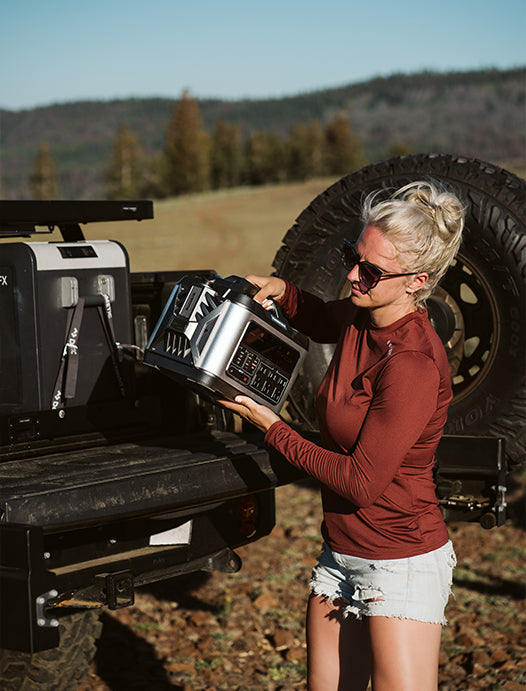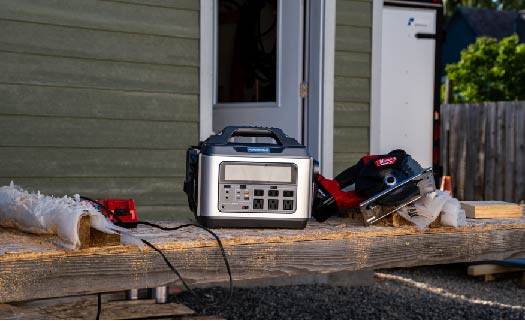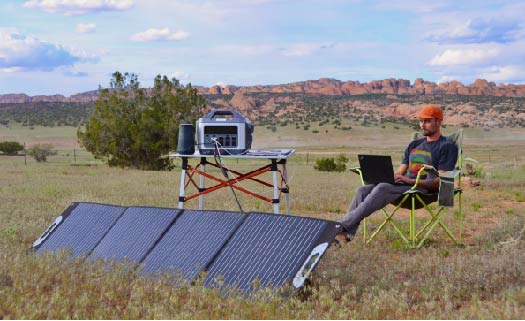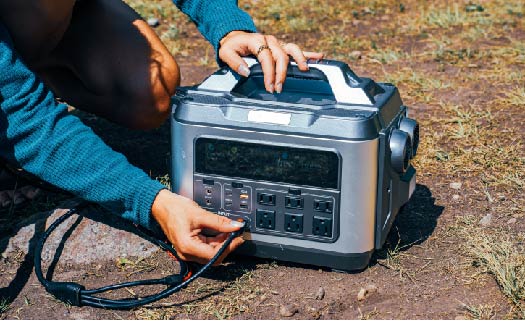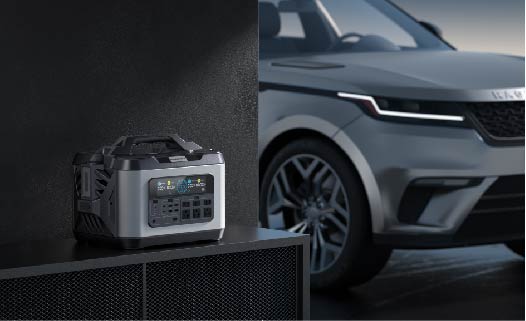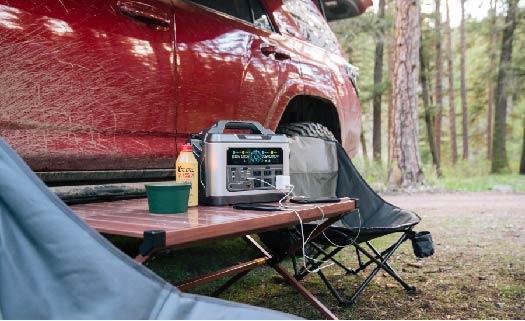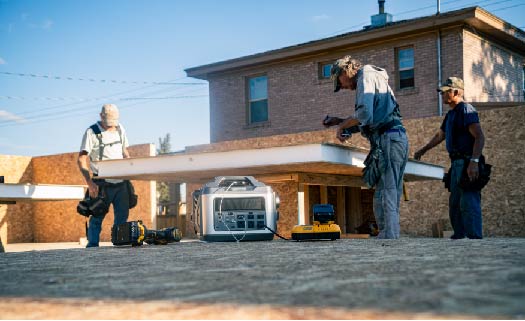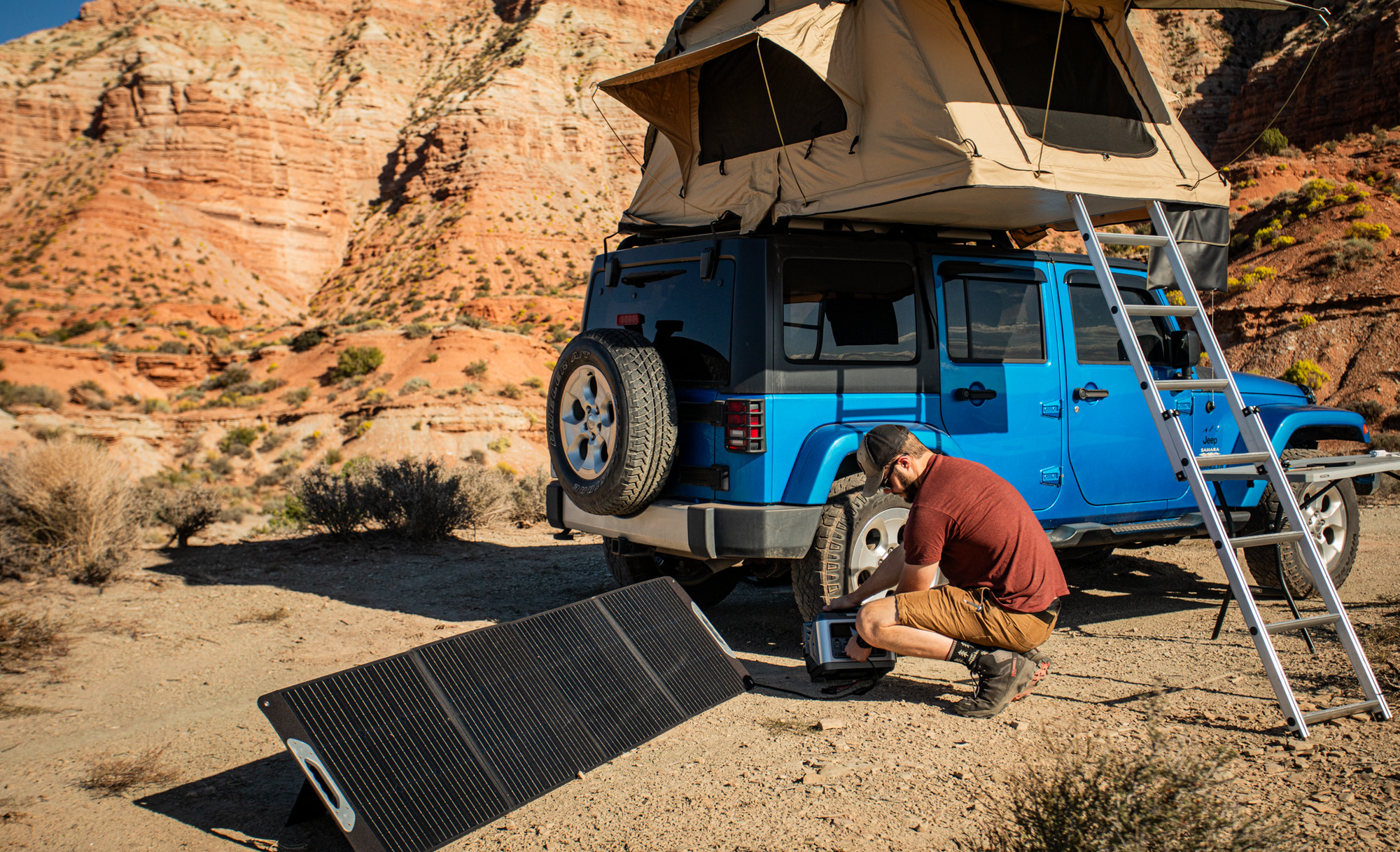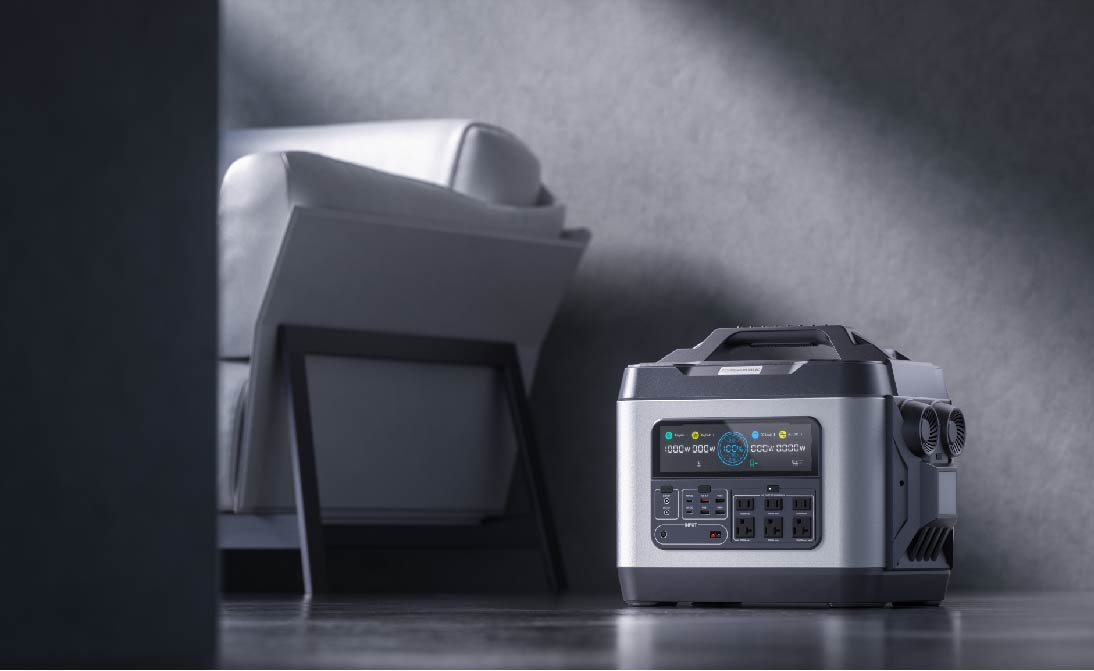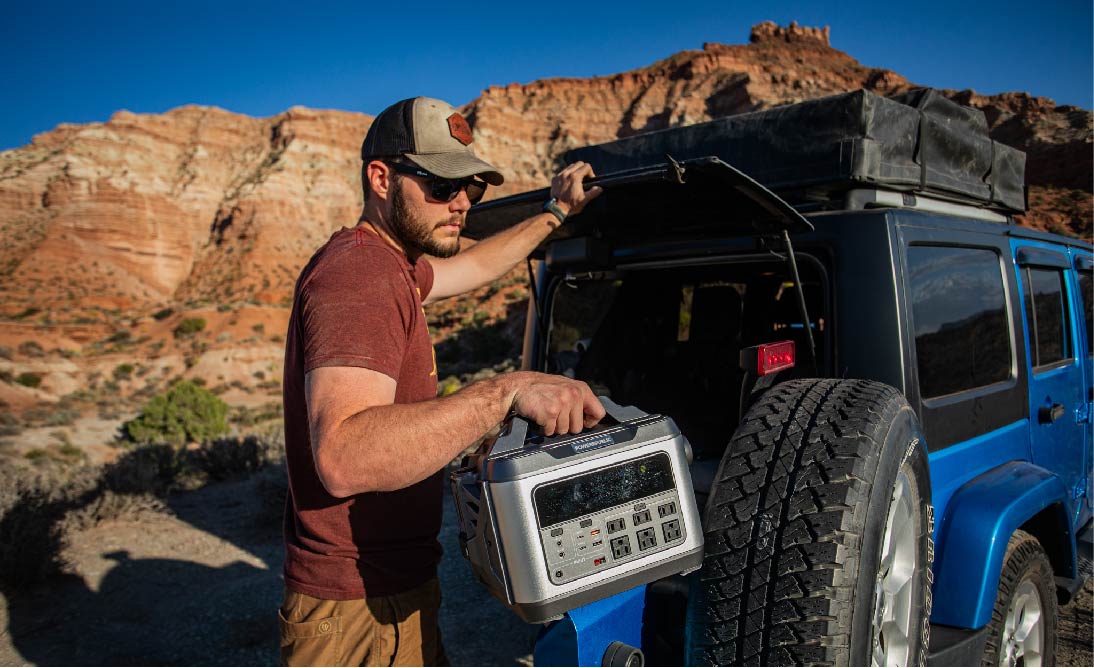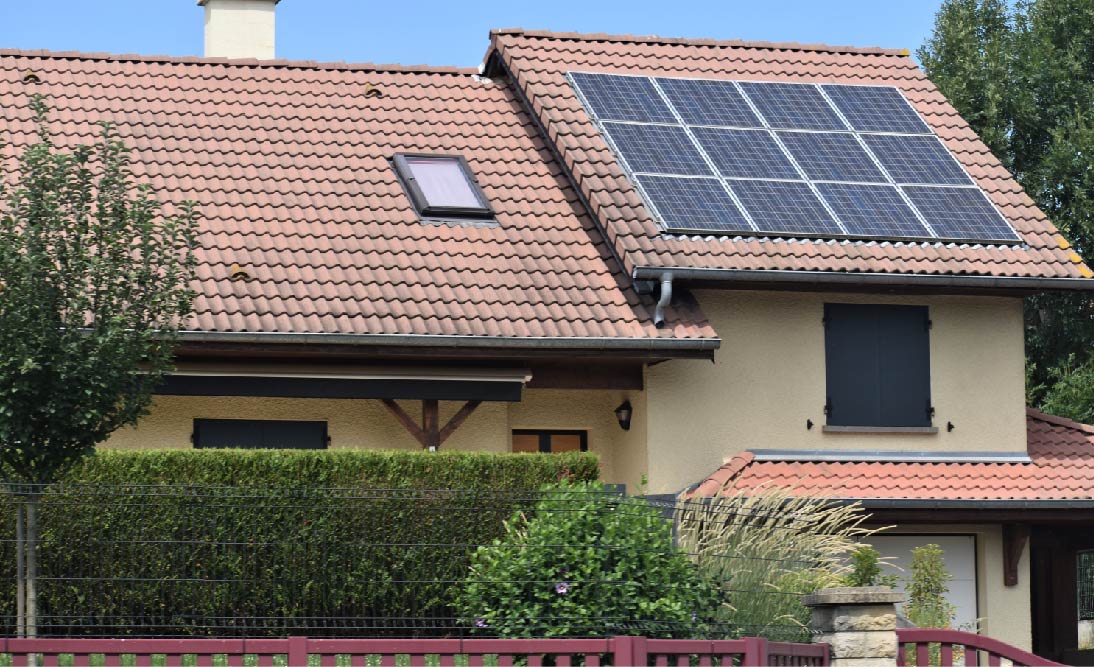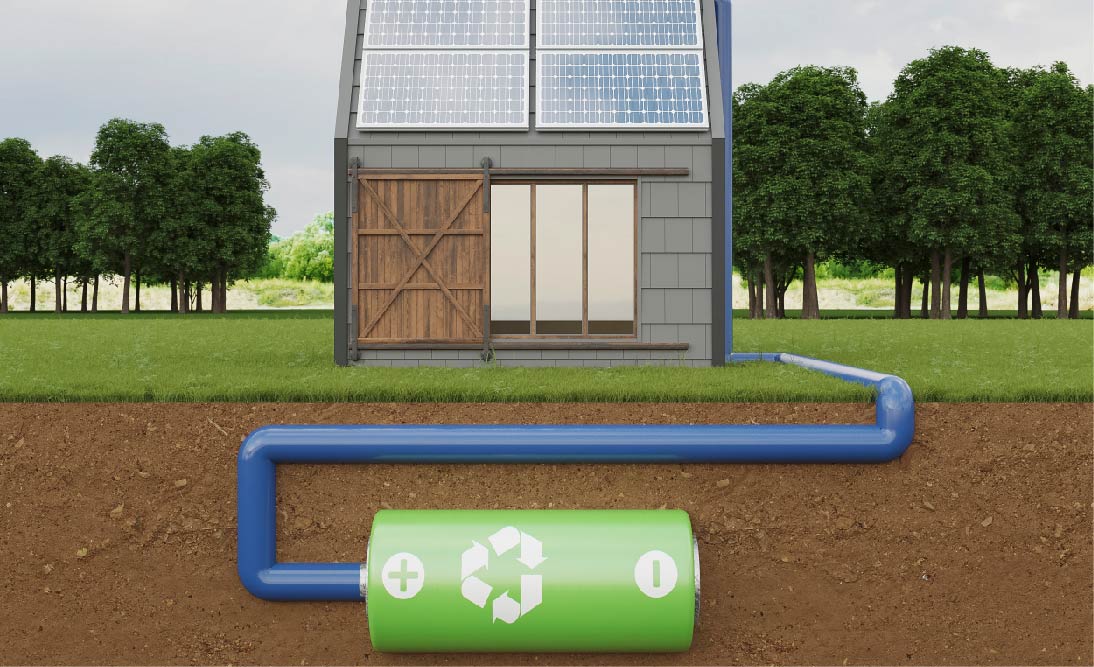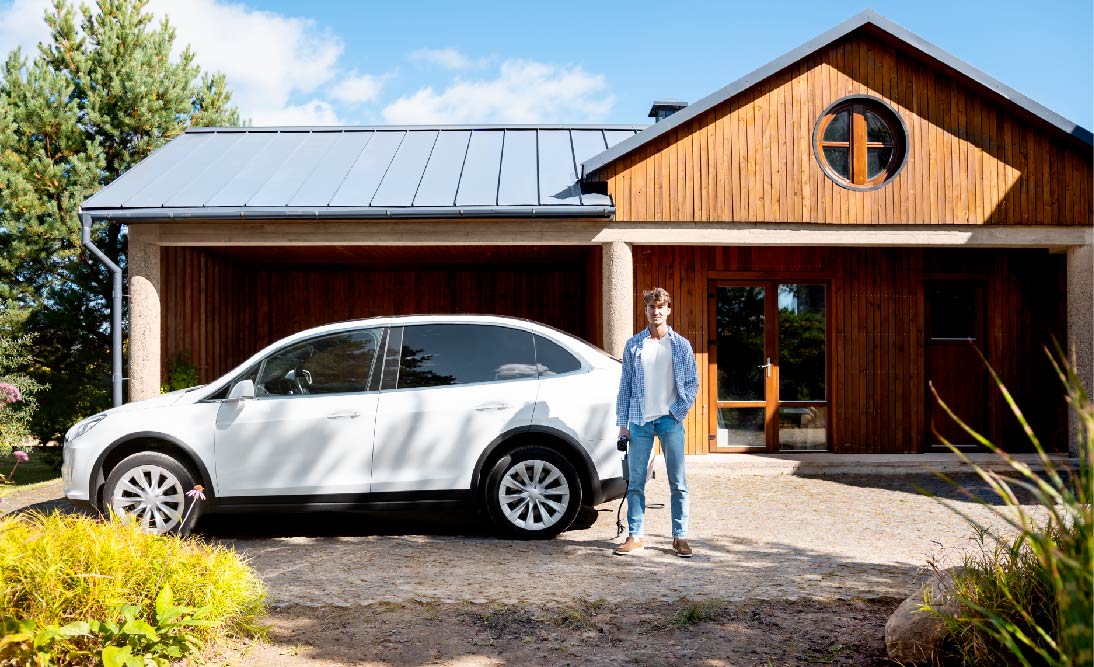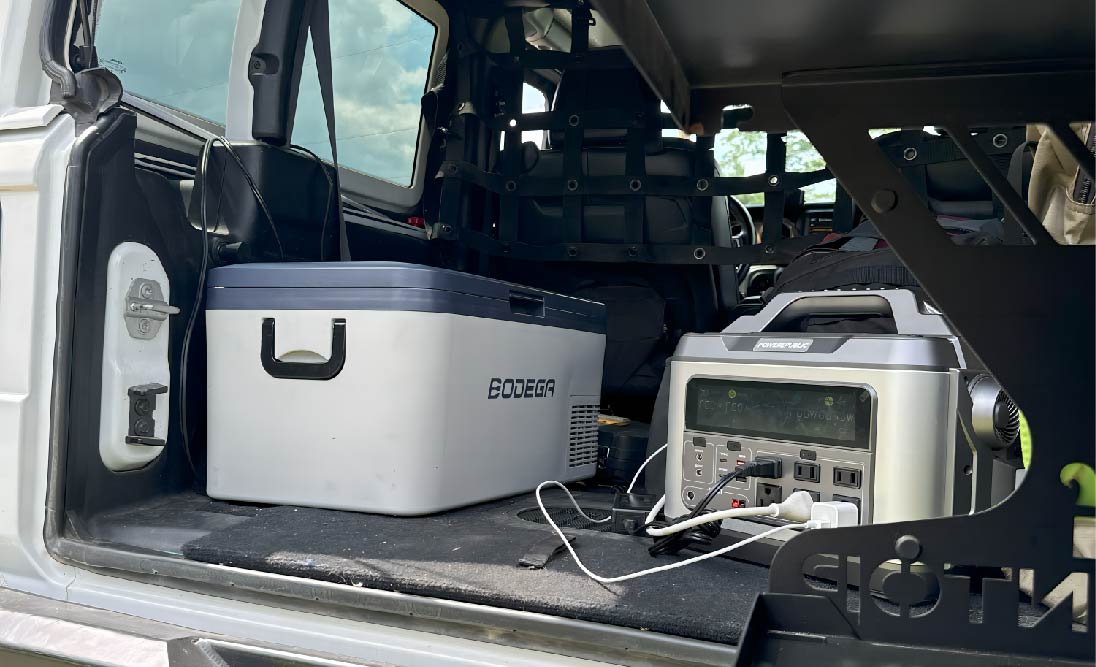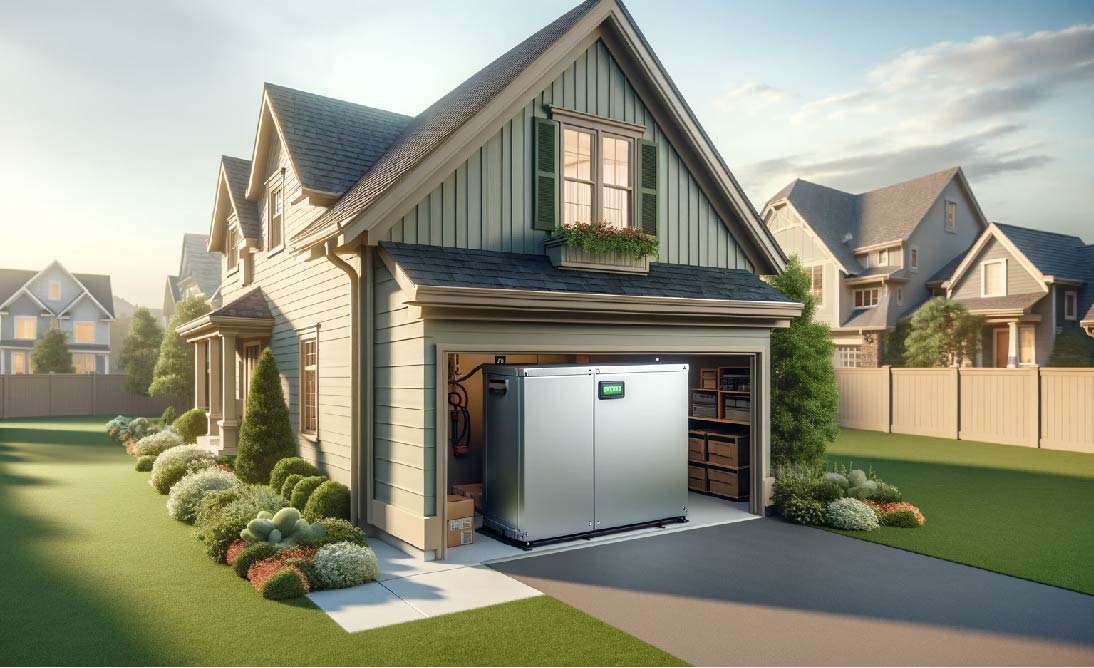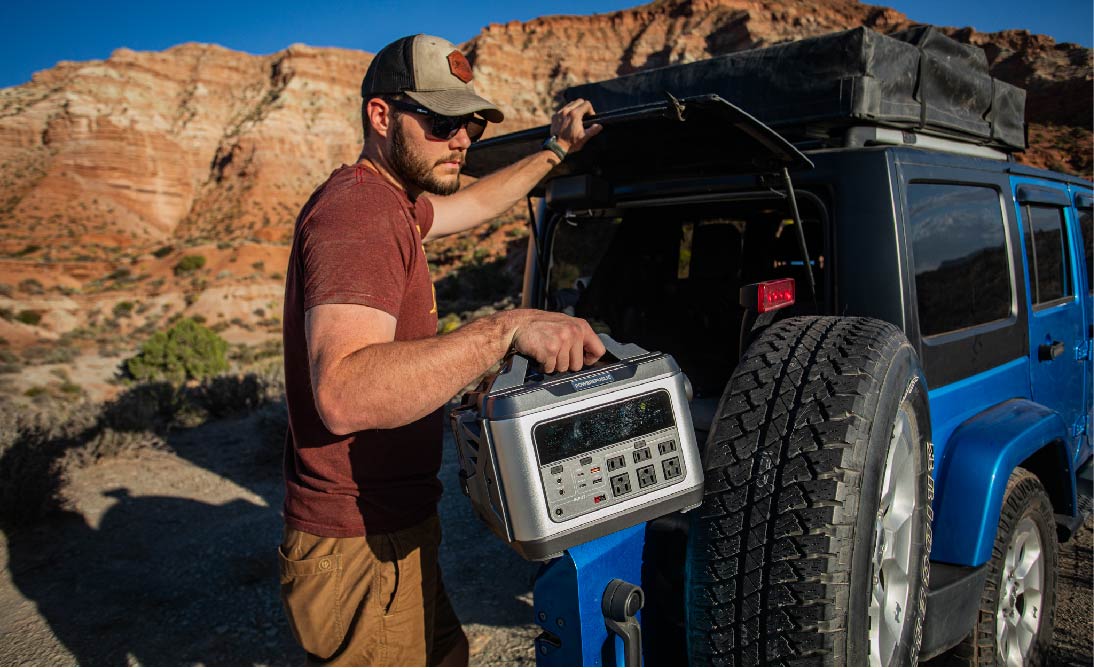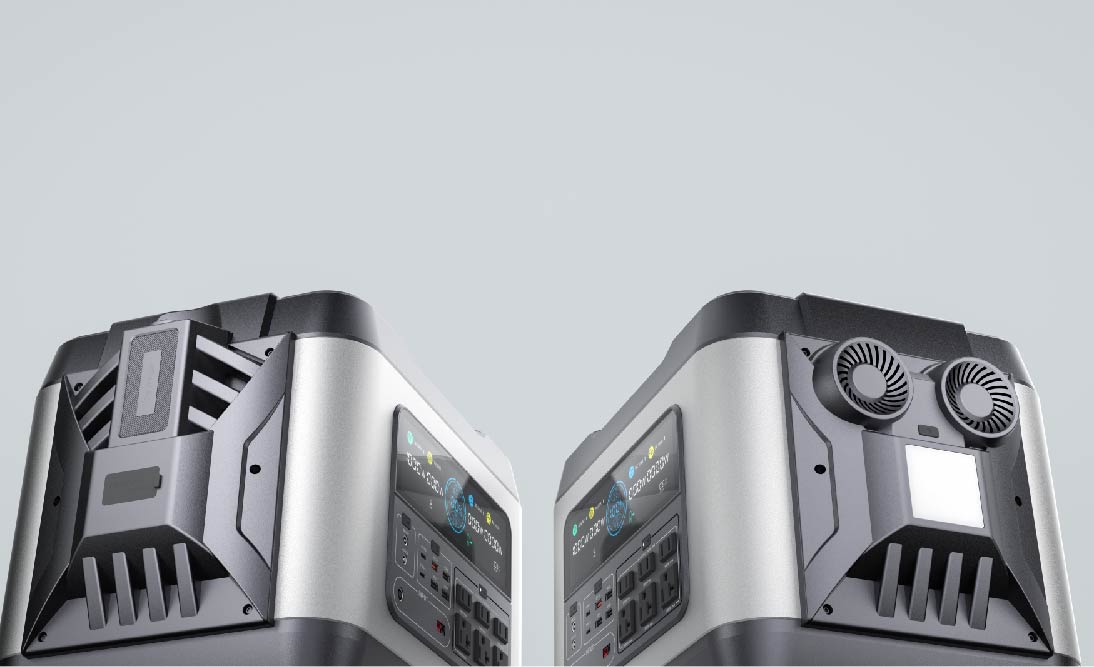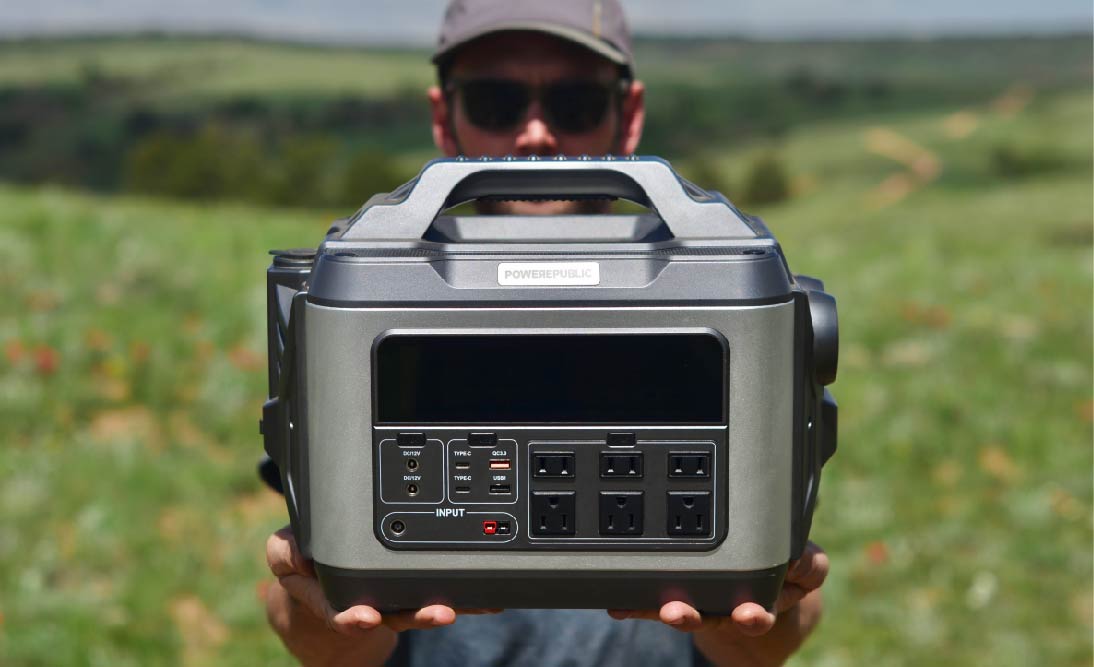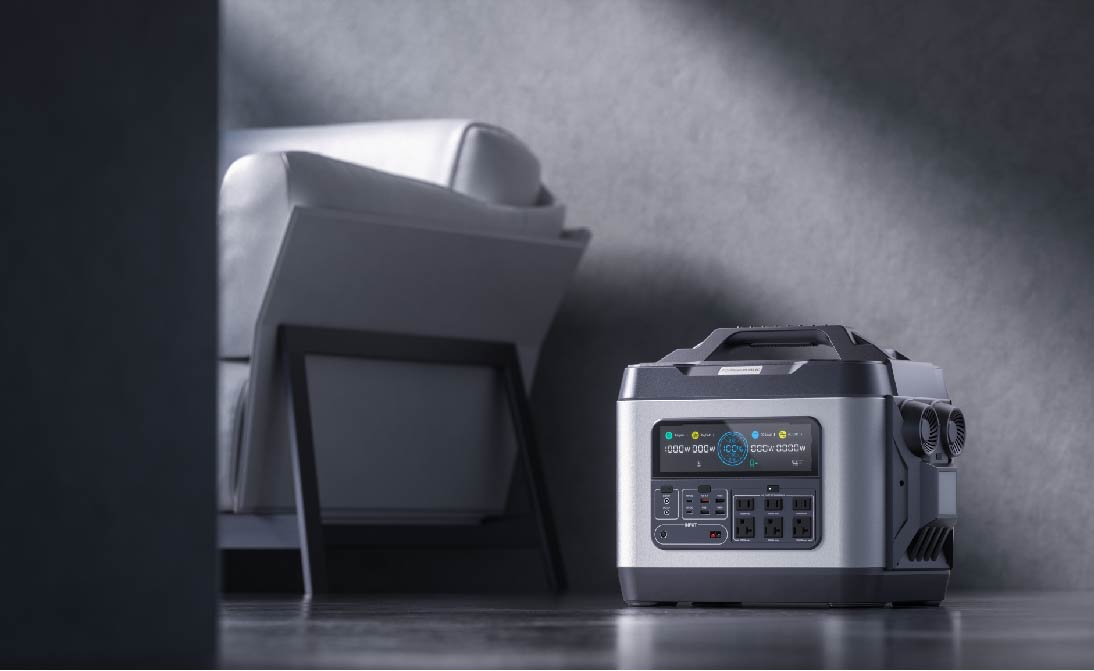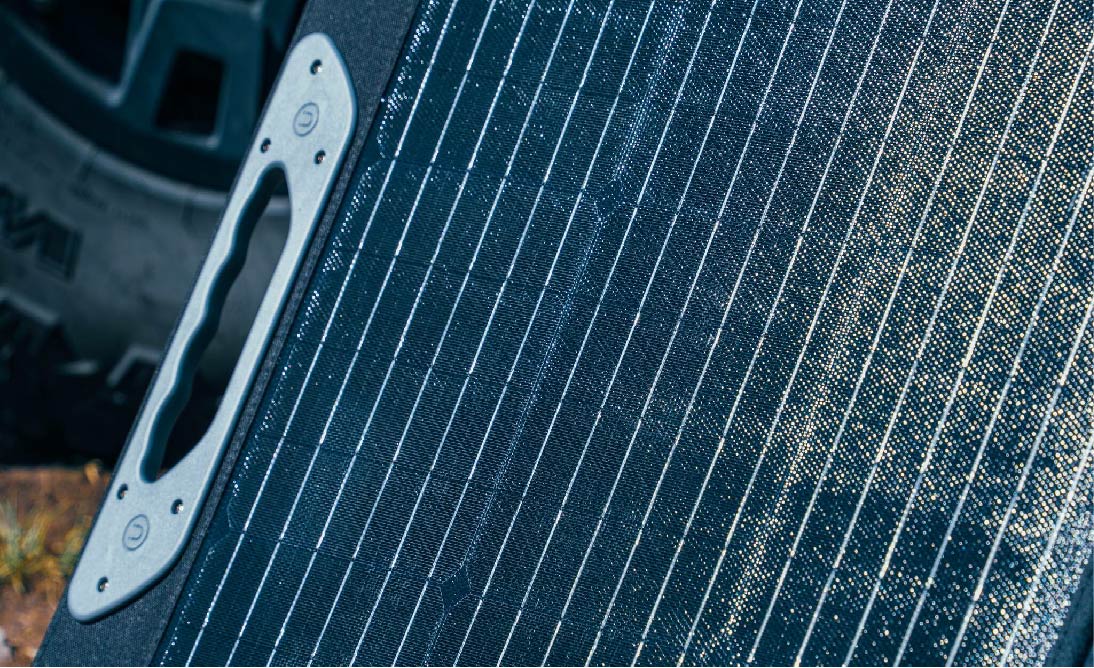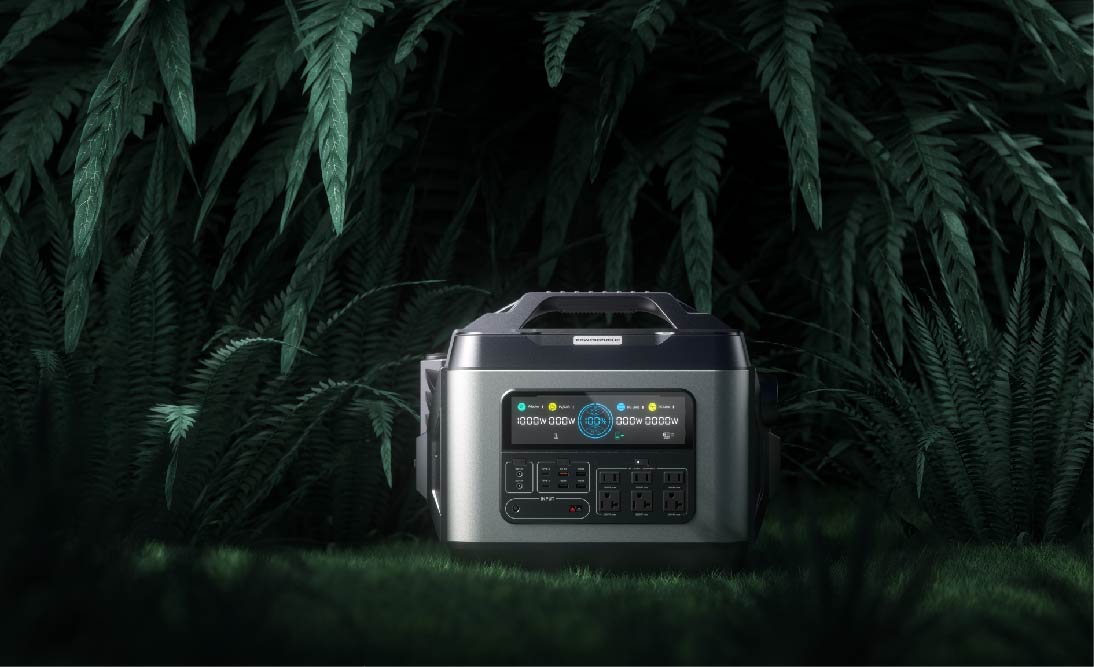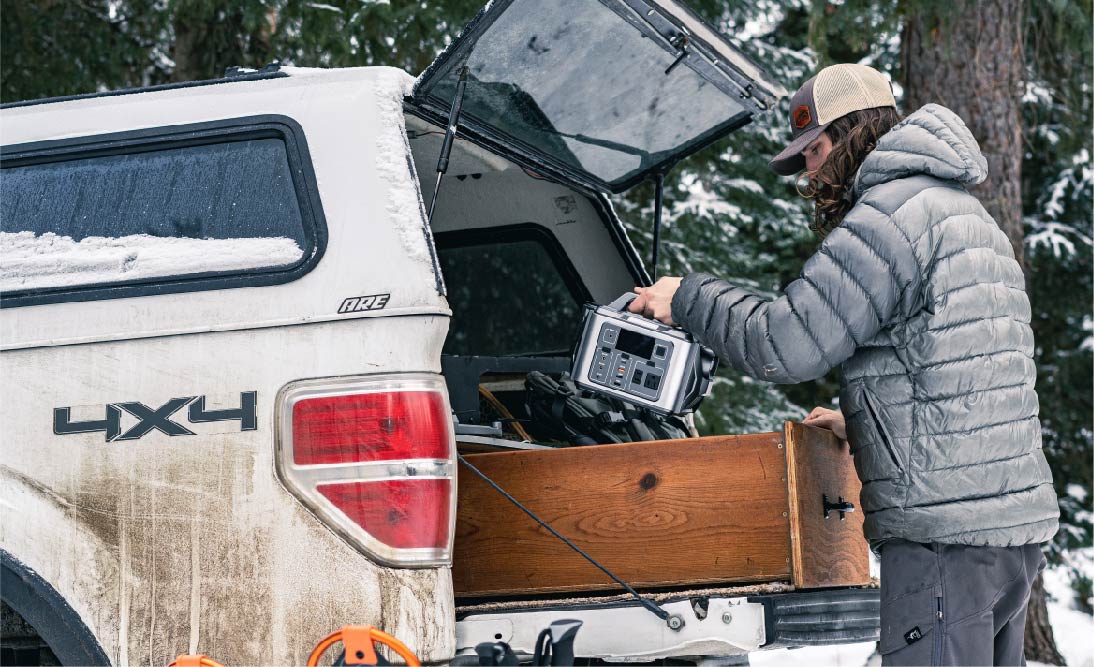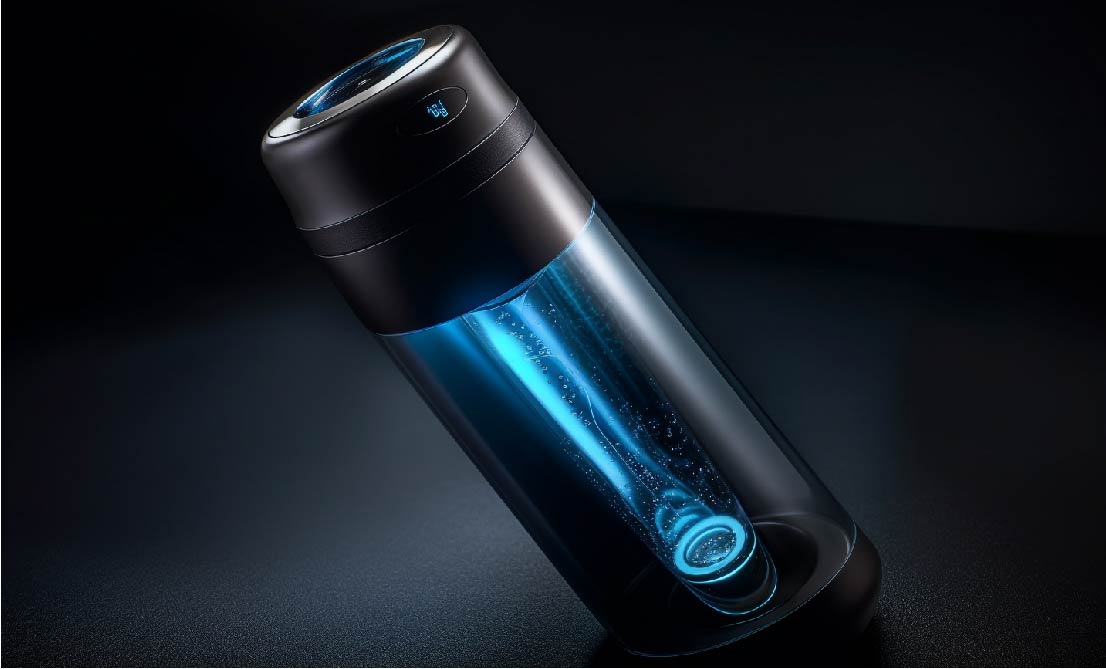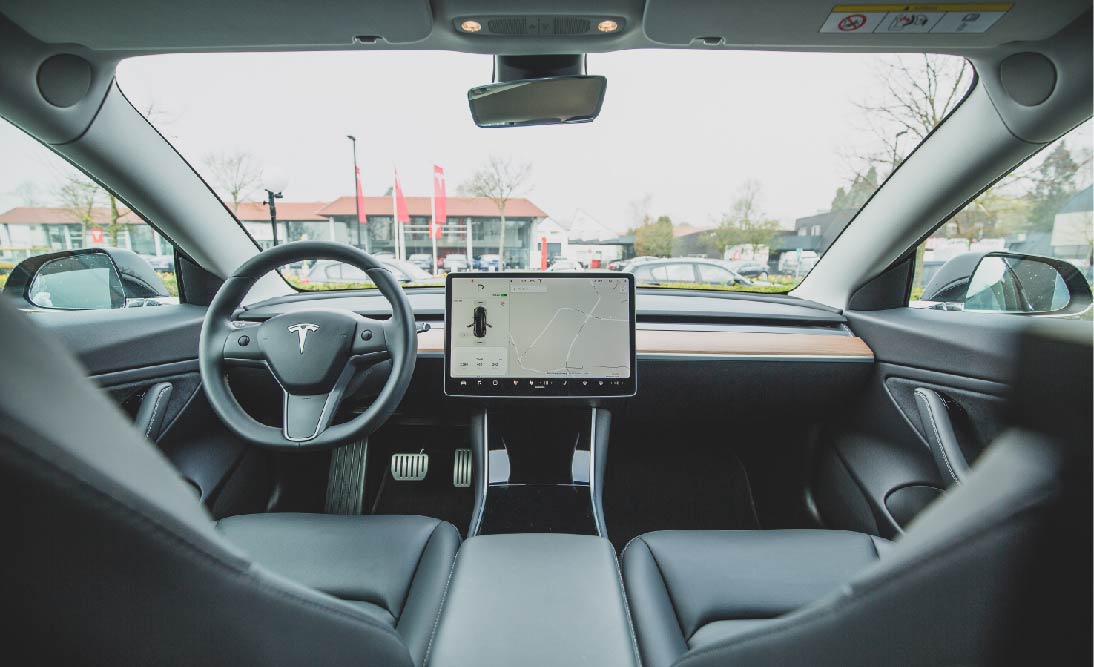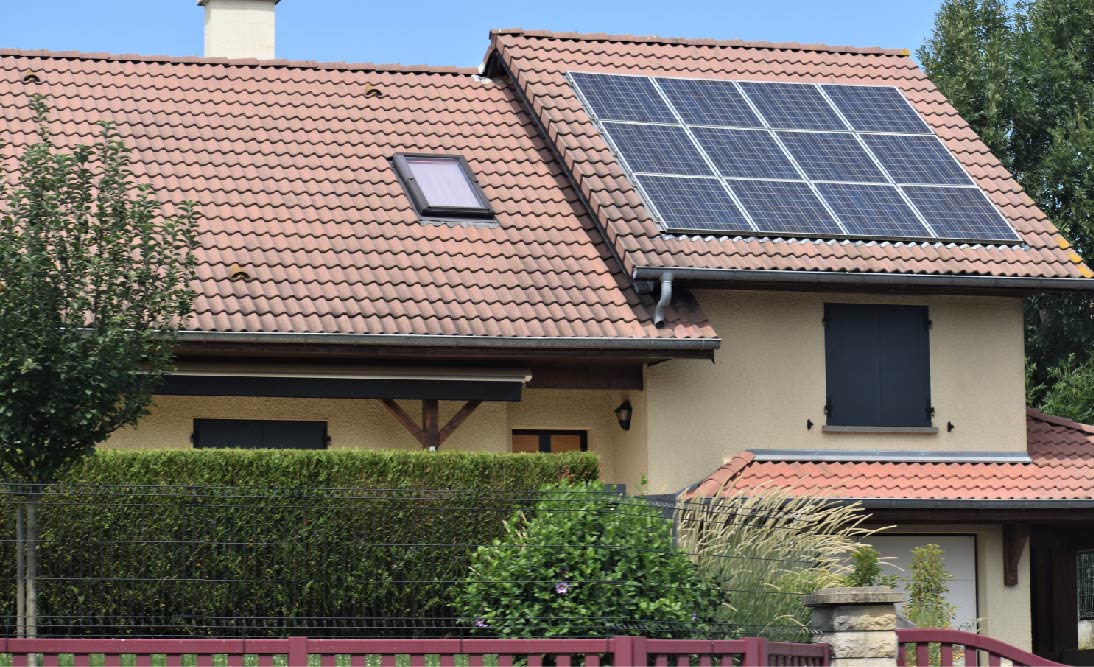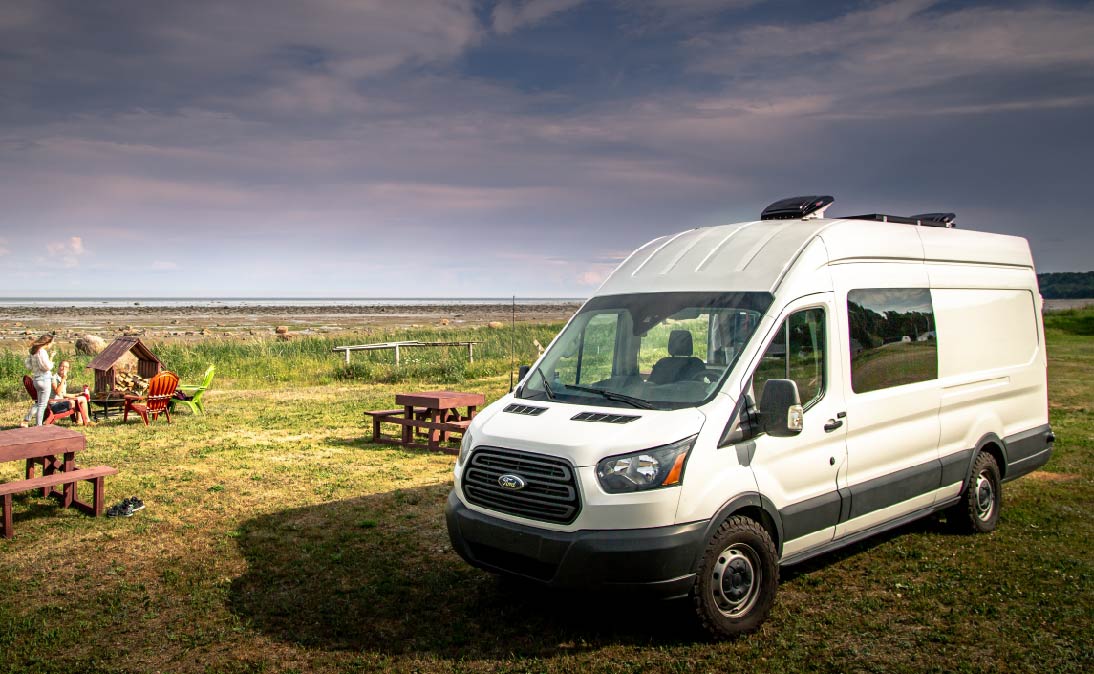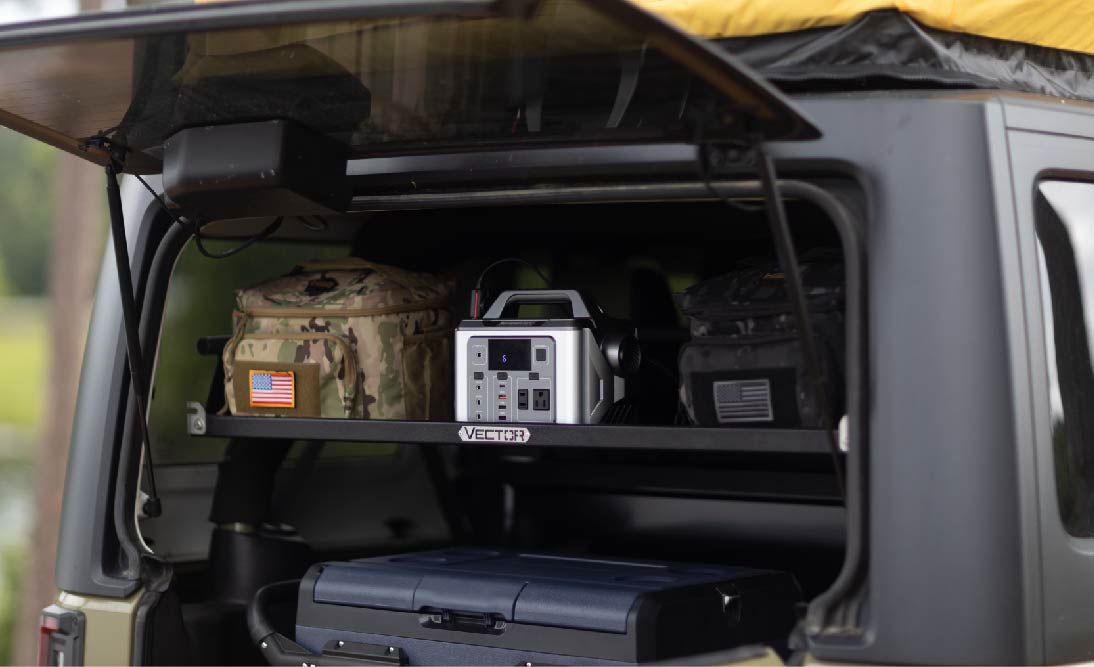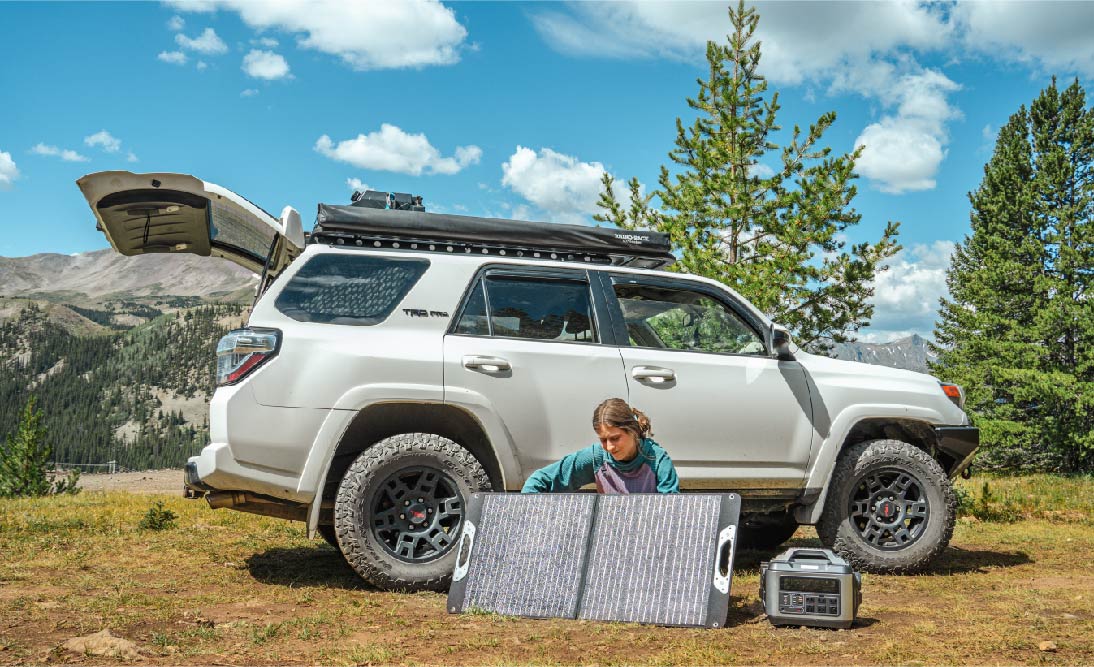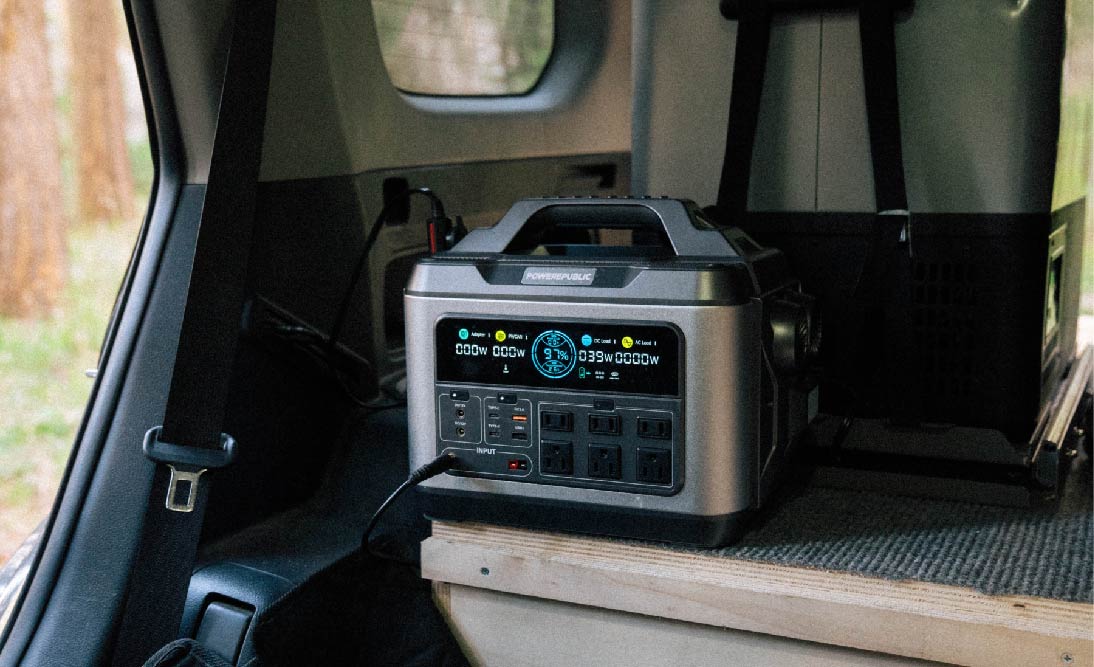Table of Contents:
-
Pros and Cons of Having a Battery Backup For Home Appliances
-
Can a Portable Power Station Operate Like a Battery Backup For Home Appliances?
-
Battery Backup For Home Appliances: POWEREPUBLIC T2200 and T3000
In today’s world, where power outages are increasingly common, having a reliable battery backup for home appliances has become a necessity, not just a luxury. These systems are crucial in ensuring that essential appliances, from refrigerators to life-saving medical devices, remain operational during electrical disruptions. However, homeowners often face challenges such as high initial costs, selecting the appropriate battery type, and managing installation space and complexity.
Addressing these challenges, POWEREPUBLIC presents an innovative solution with its T2200 and T3000 portable power stations. These models are specifically designed for those seeking a temporary but effective battery backup for home appliances, making them ideal for short-term power outages or situations with less demanding energy requirements. In this blog, we aim to help you select the ideal battery backup options for your home appliances, considering your energy needs, budget, and frequency of use. We hope you find this guide beneficial.
Battery Backup For Home Appliances Overview
Battery backup for home appliances is an increasingly popular solution for ensuring uninterrupted power in residential settings. These systems provide a safeguard against power outages, ensuring that essential home appliances continue to operate smoothly. Understanding the basics of battery backup for home appliances, including what they are, what you need, how they work, their lifespan, types of batteries, and price range is crucial for homeowners considering this technology.
What Are Battery Backups for Home Appliances?
Battery backup for home appliances refers to systems designed to provide electrical power to your home in the event of a grid outage. These systems are connected to various home appliances and automatically kick in when regular power sources fail, ensuring that critical devices like refrigerators, heating systems, and medical equipment continue to function. For instance, in the event of a storm causing a power blackout, a battery backup ensures that your refrigerator, HVAC system, and even critical medical equipment like CPAP machines remain operational.

What Do You Need for a Battery Backup at Home?
To set up a battery backup for home appliances, you'll need a few key components:
-
Battery Bank: It can range from small units for essential appliances to large setups for whole-house power. For example, Tesla's Powerwall is a popular choice for whole-house backup.
-
Inverter: This device might be a standalone unit or integrated into the battery system, like in some modern solar-plus-storage systems.
-
Transfer Switch: It can be manual, where you switch it on during an outage, or automatic, which detects power loss and switches to battery power seamlessly.
-
Charge Controller: Essential for solar-powered systems, it ensures batteries are not overcharged, thus extending their lifespan.
How Do They Work?
Battery backup for home appliances works by storing electricity in a battery bank when the grid is up. When the grid goes down, the system automatically switches to the battery bank for power. The inverter in the system converts the DC power stored in the batteries to AC power, which is what most home appliances require.
How Long Does a Battery Backup Last?
The lifespan of battery backup for home appliances depends on several factors, including the type of battery used and the frequency of power outages. Typically, these systems can last anywhere from 5 to 15 years. The batteries themselves may need to be replaced every 5 to 10 years, depending on their type and usage.
Types of Batteries for Home Appliance Backup
The most common types of batteries used in battery backup for home appliances are:
-
Lead-Acid Batteries: Traditional, and cost-effective, but require maintenance and have a shorter lifespan.
-
Lithium-Ion Batteries: More expensive but offer longer lifespans, higher energy densities, and require little to no maintenance.
-
LiFePO4 Batteries: A subtype of lithium batteries known for stability and safety.
Price Range of Battery Backup
The cost of battery backup for home appliances can vary widely based on capacity, brand, and technology. A basic system might start around $1,000, while more advanced setups with higher capacity can exceed $10,000. It's important to consider the long-term savings on energy bills and the peace of mind these systems offer.
Section Overview
In summary, battery backup for home appliances is an essential consideration for modern homes. Whether you're dealing with frequent power outages or just want the security of uninterrupted power, investing in a battery backup system can be a wise choice. Remember, when considering battery backup for home appliances, assessing your home’s energy needs and choosing the right type of battery are critical steps in ensuring a reliable power backup solution.
Pros and Cons of Having a Battery Backup For Home Appliances
Investing in a battery backup for home appliances is a significant decision for homeowners. Understanding the advantages and potential drawbacks of these systems is crucial.
Let’s explore the pros and cons of having a battery backup for home appliances to help you make better decisions.
Pros of Battery Backup For Home Appliances
-
Uninterrupted Power Supply: The most significant advantage of a battery backup for home appliances is the assurance of an uninterrupted power supply. During outages, these systems ensure that essential appliances like refrigerators, heating systems, and medical equipment keep running.
-
Energy Independence: With a battery backup for home appliances, homeowners can enjoy a degree of energy independence. This is particularly beneficial in areas with frequent power outages or unreliable grid power.
-
Cost Savings in the Long Run: Although the initial investment might be high, battery backup for home appliances can lead to significant cost savings over time, especially if paired with renewable energy sources like solar panels.
-
Increased Home Value: Homes equipped with a battery backup for home appliances are often more attractive to buyers, potentially increasing the property’s market value.
-
Environmental Benefits: Using a battery backup for home appliances, especially when combined with renewable energy, can reduce your carbon footprint.

Cons of Battery Backup For Home Appliances
-
High Initial Cost: The most notable drawback is the initial cost. Installing a battery backup for home appliances can be expensive, with prices ranging from $1,000 to over $10,000 depending on the system’s capacity and sophistication.
-
Maintenance and Replacement Costs: While some modern batteries require minimal maintenance, traditional batteries like lead-acid require regular upkeep. Additionally, all batteries have a limited lifespan and will eventually need replacement.
-
Space Requirements: A battery backup for home appliances requires space for installation. The size of the system might be a concern for those with limited space.
-
Complexity of Installation: Installing a battery backup for home appliances can be complex and usually requires professional installation and setup.
-
Dependence on Battery Technology: The efficiency and effectiveness of a battery backup for home appliances are heavily dependent on the type of battery used. Advances in battery technology can render older systems less efficient over time.
Section Overview
While a battery backup for home appliances offers numerous benefits like uninterrupted power and potential cost savings, it also comes with considerations like initial investment and maintenance requirements. When considering a battery backup for home appliances, weighing these pros and cons is essential to make an informed decision. Ultimately, a battery backup for home appliances can be a valuable addition to modern homes, offering both convenience and peace of mind.
How To Choose The Ideal Battery Backup for Home Appliances?
Selecting the right battery backup for home appliances is a crucial step toward ensuring a reliable and efficient power backup system for your home.
Let’s take a look at the key factors and considerations to help you choose the ideal battery backup for home appliances, with practical examples and calculations for better understanding.
Step I: Understanding Your Power Needs
-
Assess Appliance Power Requirements: Start by listing all the appliances you want to run during a power outage. For example, a refrigerator may require 600 watts, a small air conditioner of 1,500 watts, and a few lights and a TV of about 400 watts。
-
Calculate Total Wattage: Add up the wattage of all these appliances. In our example, the total is 2,500 watts (600 + 1500 + 400).
-
Consider Runtime: Decide how long you want these appliances to run on the battery backup. Suppose you need them to run for 4 hours.
Step II: Choosing the Right Battery Capacity
-
Calculate Required Battery Capacity: Use the formula: Total Wattage x Runtime / Inverter Efficiency. Assuming an inverter efficiency of 90%, the calculation for our example would be 2,500 watts x 4 hours / 0.9 = 11,111 Watt-hours (Wh).
-
Select Battery Type: For a battery backup for home appliances, you might choose between lead-acid, lithium-ion, or LiFePO4 batteries. Lithium-ion and LiFePO4 are more efficient, and have longer lifespans, but are more expensive.
-
Check Battery Specifications: Ensure the battery you choose can handle the calculated capacity. For instance, if you select a LiFePO4 battery, you might need a 12kWh battery to meet your needs.
Step III: Evaluating Other System Components
-
Inverter Size: The inverter should handle the total wattage of your appliances. In our example, a 3,000-watt inverter would be sufficient.
-
Transfer Switch: Opt for an automatic transfer switch for seamless transition during outages.
-
Charge Controller: If integrating with solar panels, ensure the charge controller matches the panel's output and battery type.
Step IV: Cost Considerations
-
Estimate Overall Cost: The cost of a battery backup for home appliances can range significantly. For a system that offers 12kWh of storage, you might expect costs starting around $8,000 to $12,000, depending on the battery type and system complexity.
-
Factor in Installation Costs: Professional installation is recommended and can add to the overall cost.
-
Consider Long-term Savings: While the initial investment in a battery backup for home appliances is significant, the long-term savings on utility bills and the value added to your property are considerable.
Step V: Maintenance and Lifespan
-
Maintenance Requirements: Lithium-ion and LiFePO4 batteries require minimal maintenance, unlike lead-acid batteries.
-
Expected Lifespan: A quality battery backup for home appliances can last between 10 to 15 years, with battery replacements every 5 to 10 years.

Section Overview
Choosing the ideal battery backup for home appliances requires careful consideration of your power needs, battery capacity, system components, cost, and maintenance. By following these guidelines and making informed decisions, you can ensure a reliable and efficient power backup system for your home. Remember, a well-chosen battery backup for home appliances not only provides peace of mind during power outages but also contributes to energy independence and environmental sustainability.
Can I Use a Battery Backup without Solar Panels?
Yes, you can use a battery backup for home appliances without solar panels. While solar panels are a common companion to battery backups, they are not a prerequisite for utilizing a battery backup system.
Here's an in-depth look at why you can use a battery backup without solar panels, along with factors to consider, and the pros and cons.
Why You Can Use Battery Backup for Home Appliances Without Solar Panels
-
Grid Charging: Battery backup systems can be charged directly from the grid. This means that even in the absence of solar panels, your battery backup for home appliances can store energy from your regular electricity supply.
-
Flexibility: Battery backup systems offer flexibility in energy sources. You can start with a battery backup system and later integrate solar panels if you choose.
-
Emergency Preparedness: Even without solar panels, a battery backup for home appliances provides a reliable power source during outages, ensuring critical appliances remain operational.

What Factors to Consider While Doing So?
-
Energy Source: Without solar panels, your battery will charge from the grid. This means you’re still dependent on the grid for electricity.
-
Cost Efficiency: Charging your battery backup for home appliances from the grid might not be as cost-efficient as charging with solar power, especially in areas with high electricity rates.
-
Environmental Impact: Using grid electricity to charge your battery backup for home appliances may not offer the same environmental benefits as using renewable solar energy.
Pros of Using Battery Backup Without Solar Panels
-
Simplicity: Setting up a battery backup for home appliances without solar panels is generally simpler and requires less equipment and installation complexity.
-
Lower Initial Investment: You avoid the initial cost of solar panel installation, making it a more budget-friendly option initially.
-
Reliability: Battery backups charged from the grid are reliable, as they are less dependent on weather conditions compared to solar-charged systems.
Cons of Using Battery Backup Without Solar Panels
-
Higher Operational Costs: Relying on the grid to charge your battery backup for home appliances could lead to higher electricity bills, especially during peak hours.
-
Less Environmental Benefit: Without solar panels, your system relies on the grid, which may include non-renewable energy sources, reducing the eco-friendly aspect of your setup.
-
Dependence on the Grid: In the event of extended power outages, once the battery is depleted, you won’t have a way to recharge it until the grid is back up.
Example Calculation
Suppose you have a battery backup system with a capacity of 10kWh. If your daily power consumption for essential appliances is 2kWh, your battery backup for home appliances can provide power for about 5 days (10kWh / 2kWh per day) without recharging.
Section Overview
In conclusion, using a battery backup for home appliances without solar panels is entirely feasible and can be a great choice for those looking to enhance their home's power reliability. However, it's important to weigh the operational costs, dependence on the grid, and the environmental aspects of using grid electricity. While solar panels add to the sustainability and independence of your battery backup for home appliances, they are not necessary for the system's functionality and emergency preparedness benefits.
Can a Portable Power Station Operate Like a Battery Backup For Home Appliances?
Yes, a portable power station can operate as a form of battery backup for home appliances, albeit with certain limitations and considerations. At the same time, they are not identical to dedicated home battery backup systems, portable power stations can serve as a temporary solution for powering some home appliances during outages. And they are more budget-friendly than home backup systems.
Here's a detailed examination of how portable power stations can function as a battery backup for home appliances, along with factors to consider and their pros and cons.
Why Portable Power Stations Can Be Used as Battery Backup for Home Appliances
-
Versatility: Portable power stations are designed to supply electricity to various devices and can be used for home appliances during power outages.
-
Ease of Use: These units are typically user-friendly, requiring minimal setup and operation, making them a convenient option for emergency power.
-
No Installation Required: Unlike traditional battery backup for home appliances, portable power stations do not require professional installation.

Factors to Consider
-
Power Capacity: Portable power stations have limited capacity compared to fixed battery backup systems. You must calculate your appliances' power requirements to ensure the station can handle the load.
-
Runtime: The duration a portable power station can supply power is limited by its capacity and the total wattage of the appliances being powered.
-
Recharging Options: Consider how you will recharge the portable station, as this will affect its readiness in an emergency.
Pros of Using a Portable Power Station as a Battery Backup
-
Mobility: Their portable nature allows them to be used in various locations, not just at home.
-
Immediate Availability: They are typically ready to use out of the box, providing an instant solution in the event of a power outage.
-
Cost-Effective: Generally, portable power stations are less expensive than installing a full battery backup system for home appliances.
Cons of Using a Portable Power Station as a Battery Backup
-
Limited Capacity: They may not have sufficient capacity to power large appliances or multiple devices for extended periods.
-
Manual Operation: Unlike a permanent battery backup for home appliances, portable stations usually require manual setup and operation during each use.
-
Frequent Recharging Needed: Depending on usage, they may need to be recharged more often, which could be an issue during prolonged outages.
Example Calculation
Suppose you want to power a refrigerator (about 800 watts), a few lights (40 watts each), and charge mobile devices (10 watts each) using a portable power station with a capacity of 1,000 Wh.
-
Total wattage needed: 800 (fridge) + 120 (3 lights) + 30 (3 mobile devices) = 950 watts.
-
Runtime calculation: 1,000 Wh / 950 watts = approximately 1 hour of runtime.
This example highlights the limited capacity and runtime of portable power stations compared to dedicated battery backup systems for home appliances.
Section Overview
In conclusion, while a portable power station can function as a battery backup for home appliances in certain situations, it's important to recognize its limitations in capacity and runtime. These units offer a flexible, cost-effective, and immediate solution for emergency power needs but cannot fully replace the capacity and convenience of a dedicated home battery backup system. When considering a portable power station as a battery backup for home appliances, assessing your specific power needs and understanding the operational constraints are key to making an informed decision.
Battery Backup For Home Appliances: POWEREPUBLIC T2200 and T3000
We know that portable power stations can serve as a battery backup for home appliances if your energy needs are minimal or if power outages last only a few hours. However, in situations where power outages extend for days or your energy requirements are high, the power and capacity limitations of portable power stations make battery backup systems a more suitable choice.
For those seeking a temporary solution to power home appliances during outages, consider the POWEREPUBLIC T2200 and T3000 models. Both are powerful and versatile, capable of powering up to 15 devices and appliances simultaneously, making them ideal alternatives for a temporary battery backup for home appliances.

To better compare and understand the functionality of both models, refer to the table below, which provides important specs and information.
|
Feature/Model |
||
|
Capacity |
2240Wh/100,000mAh |
3200Wh/125,000mAh |
|
Running Power |
2200W |
3000W |
|
Peak Power |
4500W |
6000W |
|
Battery Type |
LiFePO4(3000+ cycles) |
LiFePO4(3000+ cycles) |
|
Number of Output Ports |
15 (6*AC, 3*USB, 1*QC3.0, 2*Type C, 2*DC/12V, 1*Car Port ) |
15 (6*AC, 3*USB, 1*QC3.0, 2*Type C, 2*DC/12V, 1*Car Port ) |
|
Charging Methods |
AC Adapter, Solar Panel, Car Charger |
AC Adapter, Solar Panel, Car Charger |
|
Solar Input |
230W Compatible with POWEREPUBLIC Portable Solar Panels |
230W Compatible with POWEREPUBLIC Portable Solar Panels |
|
Additional Features |
LDC Screen, Turbine Engine and Aircraft Wing Design for Durability, Aluminum-alloy Body, LED Light on the side |
LDC Screen, Turbine Engine and Aircraft Wing Design for Durability, Aluminum-alloy Body, LED Light on the side |
|
Weight |
64Ibs/30Kg |
88Ibs/40Kg |
|
Dimensions |
18.3*11.8*12.2 inch |
18.3*11.8*14.5 inch |
|
Est.Duration(h) |
Est.Duration(h)=Capacity(Wh) * 0.85 / The power of the item(W) |
|
|
Coffee Maker (200W) |
9.5 hours |
13.5 hours |
|
Desktop Computer (250W) |
7.5 hours |
10.5 hours |
|
Television (150W-300W) |
6 to 12 hours |
9 to 18 hours |
|
Refrigerator (150W-400W) |
4.5 to 12 hours |
6.5 to 18 hours |
|
Microwave (1000W) |
2 hours |
2.5 hours |
|
Washing Machine (1200W) |
1.5 hours |
2.3 hours |
|
Portable Heater (1500W) |
1.3 hours |
1.8 hours |
|
Air Conditioner (2000W-3000W) |
2000W: 1 hour 3000W: Not Applicable |
1 to 1.3 hours |
Note That:
-
When using a portable power station, it's important to consider that its duration estimates assume only one device is running at a time with a full battery. Keep in mind, that power consumption can differ by brand.
-
Always check your appliances' continuous and surge power needs against the power station's capacity. Make sure the total power demand, including both operational and starting power, doesn't exceed what your power station can handle.
Final Thoughts
In summary, battery backup for home appliances is an increasingly vital component in modern homes, providing a crucial safeguard against power outages. These systems ensure that essential appliances continue functioning, offering homeowners peace of mind and continuity in their daily lives. They are particularly important for maintaining the operation of critical devices such as refrigerators, heating systems, and medical equipment during power disruptions.
For those seeking a temporary or more flexible solution for a battery backup for home appliances, the POWEREPUBLIC T2200 and T3000 models present a practical option. These portable power stations, while not a complete substitute for integrated battery backup systems, offer significant capacity and versatility, capable of supporting multiple devices simultaneously. They are especially useful in scenarios of short-term power outages or where the energy requirements are not extensive, making them a valuable addition to the broader landscape of battery backup solutions for home appliances.
Let POWEREPUBLIC back you up during unexpected and temporal power outages!
